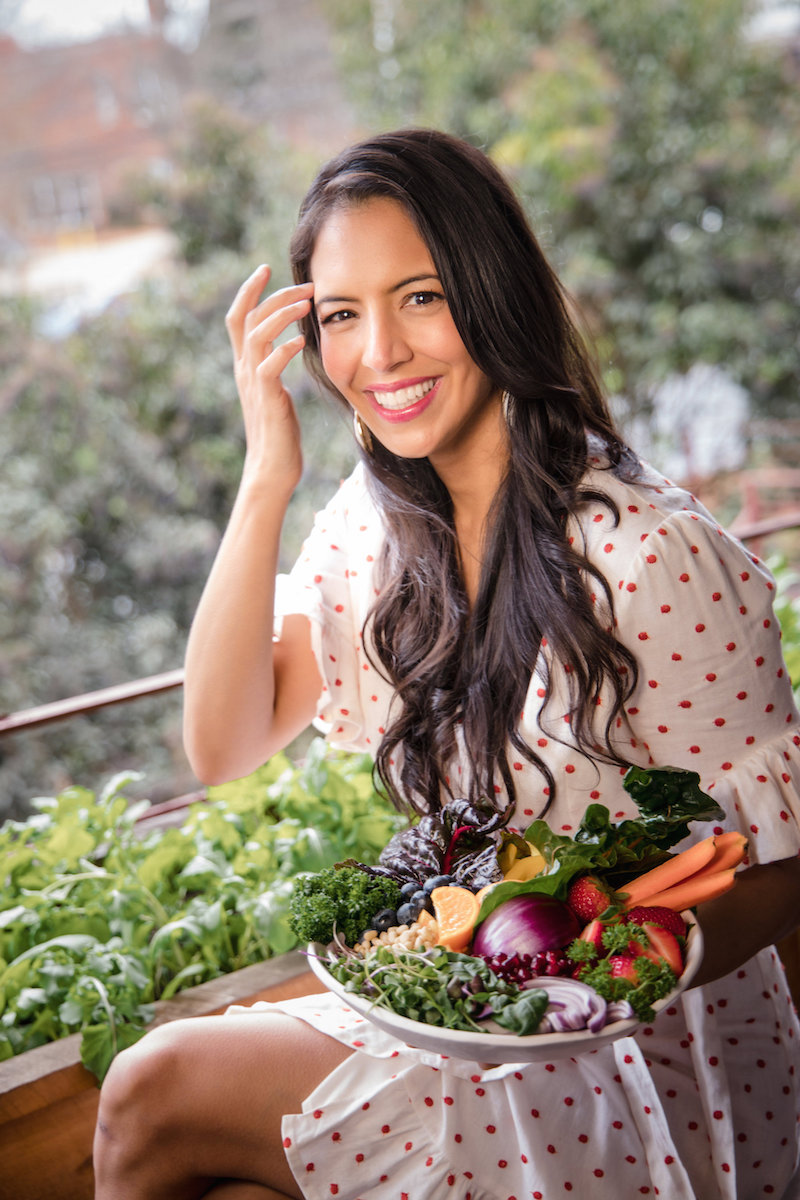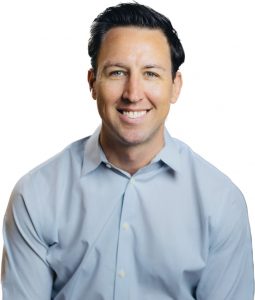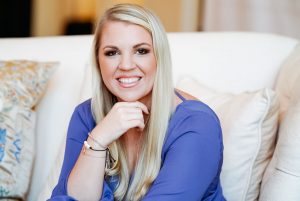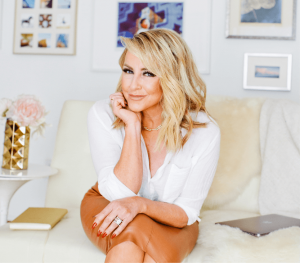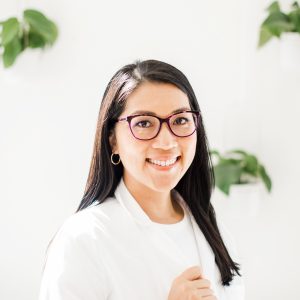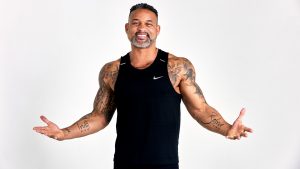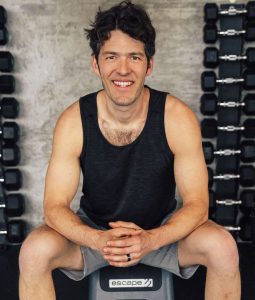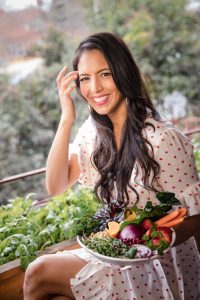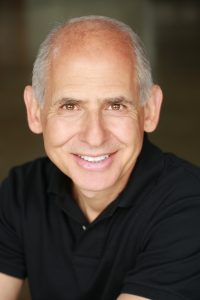SHAWN STEVENSON: All right, we are here for another expert interview for the Family Health and Fitness Summit. This one is an extra special treat. We have an icon, an icon in family health and wellness. Her new book has just come out, Food Babe Family. And it’s so crazy, her and I had family-based cookbooks come out within a week’s time of each other because we’re so synced up. My sister from another mister, Vani Hari. How are you today?
VANI HARI: No, you’re a brother from another mother, okay?
SHAWN STEVENSON: Both! It’s both!
VANI HARI: I know, I know, I know, I know.
SHAWN STEVENSON: So grateful for you.
VANI HARI: I’m so grateful for you too. And I just… Spiritually it’s so interesting to know that we both came out with a family cookbook. We’re probably writing it right around the same time, doing the photographs right around the same time, coming up with the content right around the same time. You were doing the research into why it’s so important to sit down as a family and the crazy amounts of health benefits that I’m sure your audience has already heard you speak of so many times. But I get completely blown away by these statistics that you share when it comes to the health benefits of actually sitting down at a family meal. And it is so cool to be on this journey with you because, I’m telling you, taking back control of your health starts in the kitchen. And cooking your own food, feeling it, buying it, making it, eating it, all of that is where it starts in terms of getting your health back in track and realizing the best health you ever thought you could achieve. And I’m just excited to be on this mission with you, and thank you for your amazing work in this world.
SHAWN STEVENSON: Oh, I feel that same way. I appreciate you so much. And if you could, let’s talk about why specifically create a cookbook for families? Why family focus for you personally right now?
VANI HARI: Well, growing up, I grew up with a mom that I feel really bad that I did this to her. Basically, she was cooking two different meals every night. She was cooking amazing homemade from-scratch Indian food with all of these amazing vegetables and medicinal spices and all this really nourishing food. And then I didn’t want to eat it because it looked different than what everybody else was having at school. And my brother shunned it, so I was like, “It must taste terrible.” And so I just was following kind of my peers in terms of what my preferences should be trying to fit in. And so my mom had to cook a different meal for me, and a lot of times she was too tired to cook another meal, so she allowed my dad to pick up Burger King or McDonald’s or Wendy’s on the way home from his late night classes that he taught at the university. And I grew up in this situation where… I mean, my mom was like a short order cook, she would have to make the Salisbury steak in the microwave, or put the mozzarella sticks in the Fry Daddy, or get Betty Crocker out, or Hamburger Helper because I wouldn’t eat the other stuff that she was cooking. And so she was just making two things all the time.
VANI HARI: And it’s funny that I talk about this now because she actually still does it for my brother, which shame on you, brother if you’re watching this, if you’re listening to this. So when we go over there my brother still won’t eat it and he wants her to make lasagna or something different. But anyways, I just remember this experience growing up and now becoming a mother and having two little kids and having two businesses, I can’t even imagine the work that was involved in what she had to do. And it’s like I don’t want to raise my kids that way.
VANI HARI: I want to make one family meal that we can all sit down together, I want it to be fast, I want it to be easy, but I want it to be the healthiest ingredients that I can think of to put in their little bodies. And I want variety. I want to make a different vegetable every single day. I want to make a different meat every single day. I want to make a different grain every single day. I don’t want to serve the same things over and over again because I learned throughout my journey that when kids don’t have variety in their diet, they become picky. And when kids eat too many processed foods, they become picky. And that was something that I really wanted to at the beginning of raising my kids address in the way that I served food in my family. And so throughout the journey of becoming a mom, and now my daughter is almost 7 and my son is almost 3, I learned all these different strategies and tips that I was encountering by raising them on whole real food and ignoring a lot of the recommendations of the past like, starting my kids on rice cereal or having your kids start eating at 4 months.
VANI HARI: I waited till 6 months. A lot of different things that were recommended for kids I ignored. Weaning them to cow’s milk. My kids have never had cow’s milk, in terms of other than like in an ice cream or something like that, but they don’t drink cow’s milk. So I wanted to share this kind of alternative unconventional lifestyle that I was living with everyone out there and teach people how I did it, and if there was something in there that would help other parents recognize that they don’t have to follow what everybody else is doing, there is another way. And a lot of the recommendations of the past actually ended up hurting our children in terms of nutrition, and how to undo those different things that we thought were common knowledge but now are not.
SHAWN STEVENSON: Yeah, so powerful. And you have a unique perspective, especially, you mentioned Hamburger Helper, which is… Nobody else has mentioned that, but that little three finger glove or whatever that guy was, I was super into that. The cheeseburger helper was, that was my jam. But in particular, rather than our parents and myself included, going to Burger King, going to McDonald’s and Subway, you have a special insight as to why we probably want to avoid those places because you’ve actually galvanized and created an army really to help change what a lot of these companies are putting into their foods. You know that there’s still a lot more work to be done, but you showed the power of an individual in getting these larger companies to change. Can you talk about some of the changes and things for people to be aware of that these companies were doing in the past and then we can transition to where we are today?
VANI HARI: So, the reason why I felt like it was necessary to hold these companies accountable for the ingredients that they were serving us is because I didn’t want anyone to feel like I did as a kid. I was eating Subway, Chick-fil-A, Wendy’s, McDonald’s, Burger King every single week, several times a week growing up, and then until my early 20s until I hit rock bottom. And when I was thinking about writing my new book, Food Babe Family, I was thinking of how I don’t want my kids to ever feel like I did, which was like dead zombie-like on several prescription drugs, in and out of doctor’s offices all the time. Now, I’m in a situation where I have my doctor begs me to come in with my kids because they’re like, she’s like, “They haven’t had their annual. It would be nice to see them.” And she’s a friend of mine too, my PDR pediatrician, and so I like to just go in there and chit chat whether it’s not even there really to see if my kids are doing okay, because I know they’re doing okay, right? They don’t have any health issues. And it’s so great to see that. To think back when I was seven, I knew my doctor’s office was like nobody’s business. I knew where the fish tank was, I knew where all the toys were, I can just envision myself there because I was there so much, getting antibiotics, steroids, asthma medication, quarter turn shots for my eczema, all of this stuff.
VANI HARI: I remember crying about it too, because who wants to get a shot all the time for this stuff that you’re experiencing? My children are leading such a different life because of these choices, and I just want people to know there’s another change out there. And so when I made the decision to take back control of my health, I had this new insatiable curiosity about what was in the food that I had been eating. And some of the first early changes that I did investigations on were Subway. They had this tagline, “Eat fresh.” Are you really eating fresh? And when I looked into the bread, the bread had over 50 chemicals in it, chemicals I didn’t recognize, and didn’t know what they were there for. And so I just started researching the chemicals. Like, what is this chemical called Azodicarbonamide doing in Subway bread? And oh, by the way, they’re not using it in bread that they serve in China and in Europe and in Asian countries because, oh, wait a minute, this chemical will put you in prison and you get fined $450,000 if you use it in Singapore. And I’m like, “Whoa, whoa, whoa. This is obviously some kind of crazy hazardous chemical. What’s it doing in our bread?”
VANI HARI: And I found out that the same way that they use Azodicarbonamide in yoga mats, yoga mats, if you turn them sideways, you’ll see evenly dispersed air bubbles. Well, it was doing the same thing in bread so that it would be uniform and the exact same thing every single time. And that’s what processed food, fast food companies love. They love to make a food that’s uniform so you know what to expect every single time. And they train your body and your brains to remember that flavor and that texture so that you keep going back for more. And there’s no discrepancy from that. And so they learned to put this in Subway bread for this reason. And this was not just in Subway bread, by the way, it was in almost every single bread in the grocery store shelves at that point. Had no idea. Right? And it was this discovery that eventually led me to start a petition because I had asked Subway several times, “Why do you have this chemical here in the United States and not other places? Why don’t you remove it?” They just ignored me. And so I was like, “OK, if you’re going to ignore me, I’m not going to go away. I’m going to be relentless and I’m going to start a petition.”
VANI HARI: And it was right after Michelle Obama had announced on television that Subway was safe for kids. They announced an initiative with the president’s office and her initiatives around let’s move to make Subway like one of the sponsored healthy options for kids in schools. And that really bothered me because I was like, there’s no way… If Michelle Obama, who’s hip to all this stuff, doesn’t know about Azodicarbonamide, she’s going to know now. And so I started a petition, and within a week, Subway announced that they would remove this chemical. And we also ended up getting Azodicarbonamide removed from every bread manufacturer in America, which was absolutely incredible. So it was a huge campaign. It was a huge win. It was worldwide news. It was everywhere. It thrust myself into the spotlight as an activist.
VANI HARI: And that part I wasn’t prepared for. I thought I loved getting interviewed by CNN and Good Morning America and all these places to talk about Subway. I loved that. But suddenly there is this influx of people wanting to interview me because they’re like, “Well, wait a minute. What are your qualifications? What do you what expert are you on this?” And they started to question me as my character. And it was just like, Yeah, I’m just a normal everyday person taking back control of my health. I researched this, figured this out. I have an army of amazing people that care not only about their health, but they’re wanting to hold these companies accountable for these discrepancies. Serving us the toxic chemicals here in the United States and not elsewhere is unacceptable. And so I did it with Subway. I did it with Kraft. Kraft ended up removing artificial dyes from their mac and cheese after 33… I’m sorry, after 380,000 signatures on a petition. And then getting companies like beer manufacturers like MillerCoors and Anheuser-Busch to release the ingredients for the first time in history.
VANI HARI: Companies like Chipotle going GMO free. Starbucks removing caramel coloring level four from their pumpkin spice lattes and announcing what’s in their ingredients for the first time in history was all of these different campaigns that I waged because I was so fed up with companies kind of getting away with murder, not telling us what they’re feeding us, telling us a different thing. In the case of Starbucks, it was like this premium cup of coffee, but they wouldn’t tell you what was in it, whereas their competitor Dunkin Donuts did. And this lack of transparency really bothered me in terms of what’s in food.
VANI HARI: I like to know what I’m eating. I think the first question I always ask myself when I sit down to eat is what are the ingredients, that’s what determines whether this is really something I want to eat. And if it’s a bunch of chemicals that have been man made in a laboratory or a chemical factory that just improve the bottom line of the food industry, I don’t want to subject my body to that. I don’t want to be part of that experiment any longer because this experiment’s been going on now for over 50 years and we see the consequences. You talk about the statistics all the time on your podcast Shawn, and in your book. And it’s crazy the amount of disease that has occurred because of the ultra reliance on ultra processed foods, and it’s time for us to say no to these food manufacturers and say yes to our bodies and our health. And I think the first way to do that is to get back in the kitchen.
SHAWN STEVENSON: Oh, thank you so much for that. And you just said it, two of the biggest analysis looking at what is causing all of these epidemics of diabetes and heart disease and Alzheimer’s and obesity, the two biggest meta analysis, one was published in the Lancet, looking at the worldwide issue, so they looked at over 100 countries, and they identified poor diet is the number one cause of our chronic diseases. And then here in the United States, Journal the American Medical Association, poor diet… This is 2018, poor diet is the number one cause of our chronic disease epidemics. This isn’t just guessing anymore. But there’s something really remarkable here, and I just want to take a moment to acknowledge you because you’re a historical figure, like, if you’re not already in history books, people are going to be looking back and talking about you for decades to come, because you helped to make change to our food system. That’s incredible.
SHAWN STEVENSON: And I love that you mentioned how things kind of shifted, like you weren’t expecting all of this extra energy like an energy shift where people start to criticize you or question you or question your character. And you just… And here’s the craziest part about it, as you were saying that I’m just like, You’re educated woman, you’re an educated person, and you have the ability to read. I remember a time when reading was admirable. And today, honestly, we live at a time where it’s just like, “Don’t do your own research,” right? There are literally experts, there are literally headlines from major news outlets saying, “Don’t do your own research when it comes to health, you’re not qualified.”
VANI HARI: They want you to just believe their paid for experts, so they can continue the narrative of what they want you to believe so that they continue to make money. And that’s really, really sad. And it’s the same reason, and you’ve talked about these crazy situations that have been revealed, and the fact that we’ve submitted FOIA requests, Freedom of Information Request Acts to universities everywhere, and we found things like Harvard scientists being paid by the Coca Cola to tell us, “Hey, we’re not moving enough, it has nothing to do with the overabundance of sugar in your sodas.”
SHAWN STEVENSON: Yep, yep. You just said it. And here’s the thing, I went to a conventional university, our nutrition program was funded by General Mills in part, it’s just like, why on earth would they not recommend it? We’re talking about a master company of ultra processed foods, controlling what we’re getting educated about. And of course we’re not going to talk bad about these companies. And so when we’re talking about qualifications, we pay high priced tuitions to learn things that are not accurate. Basically, we’re getting miseducated about human health. And for me, I’m just a big advocate of looking at the results. What we’ve been taught and what the public has been framed as healthy has not worked, period.
SHAWN STEVENSON: And so that’s why we’re doing this incredible summit, and to have you here is something special. But to shift focus, specifically for our kids… This is one of my favorite conversations right now about picky eaters, because you already said two profound things that… Literally when you said one of these things and we had a conversation before today it was like, “Oh my god I’ve never thought about that.” And the fact that, being a picky eater, which we’ve all dealt with many parents here have dealt with, and you said short order cook, I’ve heard that 1000 times already so far. But it’s a new phenomenon. Being a picky eater is a new phenomenon. And I have close proximity, my wife is from Kenya, and growing up in her community, she wasn’t a picky eater; she ate the food that everybody else ate, because she didn’t have a choice. And it was just a natural part of the culture. You share with me that the ultra processed food industry is largely behind this new phenomenon of being a picky eater. Let’s talk about that connection.
VANI HARI: Yeah. I just want everyone to imagine, every day at snack time you give your child some Goldfish. Those Goldfish are created to make the child finish the bag because it’s white flour, it’s laced with MSG additives, autolyzed yeast extract, natural flavor, and that’s hijacking the taste buds in your child’s brain to remember that flavor and to eat… Like after one, they wanna eat the second one and the third one and the fourth one, and it’s the same exact flavor profile every single time. Now, take the child that has the blueberries for snack. Sometimes it’s juicy, sometimes it’s sweet, sometimes they’re big and plump, sometimes they’re small and mealy, every single time nature grows a blueberry it’s different. And so the variety that your child’s getting in that palate is so different every single time, so that when they’re introduced to a new food or a new texture, they’re able to handle it. ’cause their body’s been primed to do that every single time they had those blueberries for a snack, right?
VANI HARI: But the child that’s had the Goldfish, they’re not going to have that muscle memory of understanding what it feels like to have all those different tastes and textures because they’re getting the same damn thing every single time. And so, it’s up to us, parents, to unlock the shackles that the food industry have put on our children and say, “Enough’s enough. Our kids are not going to eat processed foods for every snack and mealtime. They’re going to eat real food, and it’s gonna be something from nature so that the things that nature intended for us to experience when we were palates happen naturally, that every season the foods change and new variety happens in new nutrition and nutrients and vitamins and minerals enter our bodies. And so that’s what makes us, I think, the healthiest individuals is that wide variety. And it’s one of the reasons why I am serving a different fruit for breakfast, a different vegetable every single day. Doing things that are… Expand the rainbow of what’s available out there so that…
VANI HARI: Some days your kids may not eat it, and that’s totally fine. I remember yesterday I had a hard time with my almost 7-year-old, she was like both at lunch and dinner, and told me my food was disgusting. She literally said that to me. And [laughter] And it was hard to take, right? Kids push their boundaries. They do these things where they rebel against what they’ve been eating or what they want. And sometimes you have to hold the boundary as a parent.
VANI HARI: And at lunch, I didn’t hold the boundary, I made something she wanted to have, but at dinner I made the boundary. ’cause I was like, “Nope, we’re not doing this for every meal. I did this for you for lunch, but I’m not doing it for you dinner. We’re eating the same thing as everybody at dinner.” I said, “I’ve made five different things, you eat what you like.” She ended up eating everything and she cleaned her plate. She was just pushing back because she can push back. Right? And that’s their job as kids, right?
SHAWN STEVENSON: Yeah.
VANI HARI: Like, we have to remember, developmentally, it’s the job of kids to push boundaries, and it’s up to the parents to hold those boundaries. So if you allow your kids to walk all over you and you end up making them something different, or if they demand the Goldfish at snack time instead of the blueberries, you have to hold those boundaries in order to create the palates that you wanna see in your kids and the type of nutrition you wanna put in their bodies.
SHAWN STEVENSON: Holy moly. Yeah. I’ve got so many memories right now popping up of like, even just being on an airplane recently and this kid flipping out, he’s probably 4-year-old, just like yelling at their mom, “Give me the Goldfish,” or whatever the food was. It’s just like, I demand it. And of course, you want to… And I love that you’re bringing up this really important insight that, kids, there’s a natural apprehension as well for kids. So there’s a natural tendency to press the boundaries and to see how much you can get away with. But also there’s a natural apprehension with new foods and different textures and all those things. And if we don’t have that continuous input, then we’re probably gonna struggle when we are presented with a new food. And so let’s talk a little bit about that, about our kids, for any of us, just a natural apprehension towards trying new things when we’re little.
VANI HARI: Yeah, no. One of the things… When you ask that question, I think about my son who, when the first time I gave him green beans, he threw them all over the floor. Right? And it wasn’t until the 10th time that I made them that he actually enjoyed eating them. And now it’s one of his favorite foods, he loves his green beans. Anytime I cook them, he cleans his plate. But it took 10 times. And that’s a lot of patience on a parent. I understand that. But it’s that reintroduction over and over and over again to get them used to the flavor, the texture, the type of food it is. And eventually you’ll surprise yourself and what you do. And a lot of times, again, it’s going back to boundaries of like, “This is what we’ve made, this is what we’re having, you will eat it.” And that’s it.
VANI HARI: And that’s how it was back in the day before our pantries were stocked with ultra processed foods, right? It was whatever was available on the farm that day that was fresh, whatever meat that was freshly butchered, whatever eggs were brought in, or whatever dairy you had left, that was it. That’s all you had. And you ate that. You didn’t complain. You knew that that’s what you were getting. There wasn’t this readily available fast food that exists today. And so we have to kind of go back to that situation in terms of how we parent and regulate our families.
SHAWN STEVENSON: Yeah. Thank you for sharing that. My youngest son… And even, as our kids get older, my oldest son, he just turned 23, and we just went to a restaurant and he got this incredible fish dish that he’s never had. It’s branzino. [laughter] And it came with the skin. He eats everything. Jordan eats every food except fish skin. He does not like fish skin for some reason. While my youngest son is… He’s like, “Give me your fish skin.”
VANI HARI: So good for you. That collagen.
SHAWN STEVENSON: Because when Jordan was… Right. When Jordan was younger, he had an experience that he didn’t like, and then that was that. And we just allowed it because I was just like, he eats everything else. This kid, he eats more stuff than I do.
VANI HARI: I think most people remove the skin, right? Most people do. And so like those kinds of things, I feel like you could look the other way as long as they’re eating the fish, right?
SHAWN STEVENSON: Yeah. But he ate some of the fish skin at this restaurant.
VANI HARI: Oh, that’s awesome. And he liked it.
SHAWN STEVENSON: Yeah. So I was just like, “Good job.” Yeah. But he did this because his little brother did something, which was, and I’m so grateful for this because of having that patience, those multiple times of introducing things and kind of sticking with it even if he’s apprehensive, my youngest son, I’m grateful because you could tell when he doesn’t want to eat something. But he still has, we’ve created a condition, a space where it’s just like, “Just try a bite.” And he does it. I’m so grateful for that, because if it were me when I was a kid, and if I was to ask being asked to try one bite of something, I would be like, “You see my bags over there, [laughter], I’m packed. I will leave. I will never come back again if you try to give me to eat a bite of this okra or whatever it is.”
VANI HARI: Yeah, yeah.
SHAWN STEVENSON: But it’s just having that patience and understanding, there’s gonna be a natural apprehension. It’s through our evolution, as humans trying new things like your brain, your immune system, all this stuff has to be front and center when we have those new exposures because it could be dangerous. So it’s literally a safety thing. So it’s creating an environment of safety to the best of our ability. And part of that feeling of safety is patience and love to the best of our ability. And I love the fact that you mentioned we sometimes we’ve gotta hold the line, you know? So it’s just like…
VANI HARI: Gotta hold the line. Yes.
SHAWN STEVENSON: We’ve gotta have a little bit of balance here. So, I’ve got a couple more questions for you. I want to ask you about your own family food culture or your own family health and wellness culture. What are some of the things that you’ve done intentionally to create a culture in your household of health and wellness?
VANI HARI: So one of the first things we did was we started a garden in the yard. We were spending a lot of time outside with the kids, and so we spent a lot of time gardening outside. And my husband’s a green thumb in the family, so he’s the one growing a lot of the things that we grow, but allowing our children to pick the produce and be part of that experience, seeing how the seeds are planted, and when they grow and they start to sprout and learning about all the different fruits and vegetables that we’re growing. They became kind of avid learners about how things grow, and then they started to like foods that I don’t think most kids would even try at this age.
VANI HARI: Like, one of my daughter’s favorite foods is bok choy. And it’s because we had it growing in our yard, and she would pick it with her own hands and then, we would sauté it with a little olive oil and garlic and sea salt and lemon. And she loved it. And so it ended up being one of my son’s favorites too. And it’s like this random vegetable that most kids wouldn’t even know how to pronounce or talk about, but they’re eating because it was something grown in our yard. Another one that was grown in our yard that has kind of an acquired taste, it’s not as sweet as a raisin or something like that, is goji berries. We have a huge goji berry plant and a golden berry plant in our yard. And my kids love eating off of that and they love dried versions of that too. So that’s one of the things that we did.
VANI HARI: And then also, one of the… I would say, I’ve sacrificed a lot in terms of the type of work that I was doing when I became a mom. So for example, I stopped traveling to speak, I stopped a lot of different out-of-the-house commitments so that I could be here for breakfast, lunch, and dinner with my kids. So sitting down with them and having meals with them became very important to me. For me to actually feed them became more important than anything else because I wanted to make sure they’re getting the best nutrition. Now, there are times where our nanny will feed them lunch or breakfast or dinner or something like that if I’m working or if there’s something important that I have to be gone… Obviously, my husband or if I’m gone. But I like to be there and I also like to cook the food for them too.
VANI HARI: And so that’s been a big time commitment, but also something that I found of value in my life and I think is so important because I believe that if I feed them the healthiest foods on the planet, that automatically they will become the people they’re supposed to be in this life, and their brains will be functioning so optimally that they’re going to be able to contribute to this world in a way that I can’t even imagine. Because I know I wasn’t able to do any of this kind of work outside of myself until I got myself right in my early 20s. And for so much of my life I was lost in terms of my purpose, and I found my purpose because I got my health right. And I want them to also be able to find their purpose. And I know they’re gonna be able to live up to that potential even better because their bodies are gonna be working the way they should.
SHAWN STEVENSON: Yeah. And you’re not exaggerating, by the way, on you making it a priority, because there have been several times you’re supposed to be out here with me, doing stuff.
VANI HARI: I know. [laughter]
SHAWN STEVENSON: And because your family is a priority for you, you demonstrated that. And we had to keep… We bumped things to different dates because… And here’s the thing, you’re still okay, you’re still successful, we found other ways to connect because there is always another way, but we don’t always get the time back, we don’t get the time back with our families. And so I love that you mentioned that, because I did the same thing. I would go and travel. There was a time in my career I would travel and I’d be gone for a week. I’d go to a city and do all the media and do a book signing and all the things and do a talk somewhere. And I’d come back and it’s just like, my kids look 15 years older. [laughter] Just like what happened. And so, regardless of what anybody else in my environment was doing, which I had not seen done before, I was like, “When I go, you guys are going, we’re all going together.”
VANI HARI: I love that. I love that.
SHAWN STEVENSON: And resources came about to make that happen, but it was first my intention. And then I started to see my other friends and colleagues and things like that start to do the same thing. I’d take my kids to an event and then they wouldn’t have their kids the next event, everybody’s got their kids. So I want to share this because… And by the way, everybody please get a copy of Food Babe Family. It is a perfect compliment to the Eat Smarter Family Cookbook. I’m not exaggerating the slightest. We’re gonna share why in our last couple minutes here. But you’ve got obviously a lot of delicious familiar recipes, higher quality ingredients, but you did something really cool like, homemade Hot Pockets. I was a big Hot Pockets person, if you could tell, of course, popping them bad boys. It was the Ham and Cheese Hot Pocket was my go-to.
SHAWN STEVENSON: And you’ve got these delicious quesadillas. You’ve got fruit roll-ups that you guys can make with your kids as well. Like, all of these things that kids like and we get to make these at home. We can make it together. And also another really cool thing is, a lot of the stuff that you and I make in our books are things that we can batch prepare as well, so that it’s easy to reheat later in the week, and even for my kids to reheat stuff and get to going. But here’s the distinction that I wanna share with everybody, if you could, about your project, which you actually focused on school lunches as well. And that is a big place of concern for a lot of parents. Like, “What should I do? What are some tips and insights?” Let’s talk about school lunches and how we can lean into a little bit more goodness when it comes to that.
VANI HARI: Yeah. So one thing I wanna mention is that the first half of the book is all a guidebook. It’s practical how to implement this real food lifestyle, and then there’s the hundred recipes of course, but the practical how to part, there’s a whole section dedicated to lunches. And I go through what I do for my daughter to ensure that she’s eating the most nourishing ingredients at school, and to pack it in such a way that makes it very exciting to her. I think there’s something about a school environment that’s very sterile, and having something warm available to her feels really comforting, like home. I remember wanting to buy the school lunch in high school because I didn’t want to eat a cold lunch. And it wasn’t because it tasted any better, it’s because it was hot. And so if we can figure out how to send hot lunches with our kids in the morning, I think that’s half the battle.
VANI HARI: And so I share the strategies on different tools and things that I’m using, like what thermos brand I’m using. And like I use this little warmable pouch to send in home-baked pizza that you take these two little cherry pit packs, you can stick them in the microwave, they stay hot until lunchtime, so you just stick ’em in this warming pouch. It’s almost like a miniature version of the big sleeves that they deliver pizza in, to keep it hot. And so it keeps it hot until lunchtime. You can also put burritos in there and other things that are just more comforting to eat than like a cold stark lunch. ‘Cause there’s something about… I don’t think I want something cold every single day either. And so I think that’s half the battle.
VANI HARI: And then how do you stack the nutrition in there? And so I have a chart that you can pick from and you can like just pick from each color of this chart and you get all of the different food groups in. You get a variety of food and you can switch it up. And then the other thing that again I wanna mention is variety. There was a time period, I’d say two weeks ago, when I was deep into this book launch and I was just trying to get things done, and I was sending pasta every single day to my daughter for lunch. After a week she was done. She was like, “Mom, I don’t wanna see pasta ever again.” And that’s my fault. Right? The whole point of variety is so that your kids don’t get to that situation where you do make pasta and they’re like, “I’m done. I don’t wanna eat it.”
VANI HARI: And so it’s every single day trying to do a variety but doesn’t keep you in the kitchen cooking all the time. So there’s ways to, for example, reheat what you made for dinner, take parts of dinner that you made the night before and pack it for lunch. Like for example, last night we made the fajitas recipe in Food Babe Family, and then I took the chicken from that that I didn’t shred, I took a couple pieces I didn’t shred and then put it in a little bun for her with some pickles and a little primal, kitchen ketchup, and so she’s getting a little slider at her lunchtime, and some coleslaw, the coleslaw recipes also in Food Babe Family, and she’s getting the probiotics from the pickles that we made. And like, it’s a great lunch, right? And then along with some fruit and other things that are in there, but it’s about how to make your life more simple, how to get more real food in them and then giving them that variety so they don’t get tired of stuff.
SHAWN STEVENSON: All awesome tips. Thank you so much. And though just the warm part that’s a game changer, I personally have not even thought about that. And it is so true. Especially in places where it gets cooler, cold in the wintertime and fall and that kind of stuff, and to have something warm from home, ah, that’s so good, so good. Vani, can you please let everybody know where’s the best place to follow you to stay connected and of course pick up Food Babe Family.
VANI HARI: Well, you can come over to foodbabe.com. You can follow me on Instagram @thefoodbabe. And you can get Food Babe Family everywhere books are sold.
SHAWN STEVENSON: Boom. There it is. Vani Hari, iconic historical figure. I appreciate you so much, truly.
VANI HARI: Thank you Shawn. Love you.
SHAWN STEVENSON: Love you too. Thank you everybody.
